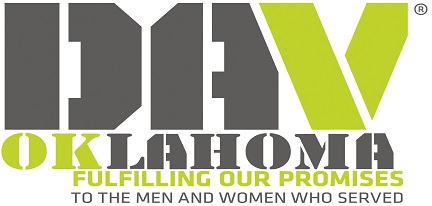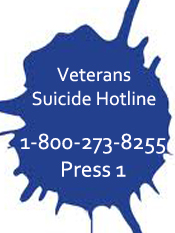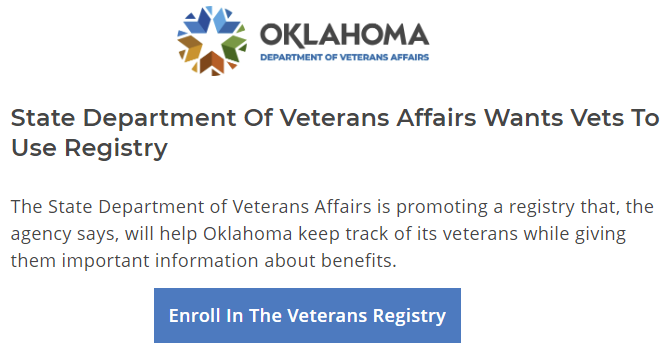On November 5, 2018 the U.S. Department of Veterans Affairs (VA) together with representatives from the departments of Labor, Justice, Defense, Homeland Security, the U.S. Navy and others, signed a joint statement aimed at improving access to free legal services for Veterans in need.
Federal agencies and the Veterans legal services community came together at VA headquarters in Washington D.C. to celebrate VA’s Medical Legal Partnerships and to recognize volunteers who serve at VA-based free legal clinics. Currently, VA hosts at least 170 free legal clinics in its VA Medical Centers, Community Based Outpatient Clinics and Vet Centers across the country, by partnering with external legal service providers, such as local bar associations, legal aid organizations and law school clinics. “Legal assistance stands high on the list of many Veterans’ important but unmet needs,” said VA Secretary Robert Wilkie. “Our goal is to make sure our Veterans have access to not only health care and disability benefits, but to community legal services that are central to their overall well-being.” Veterans often face stressful legal situations — such as eviction, foreclosure, child support or driver’s license revocations — that can affect their ability to gain or maintain employment and housing, or focus on medical treatment. At the VA-hosted event today, VA and other federal agencies committed to encourage and further the provision of volunteer legal services to Veterans.
As a prime example of the VA-based legal clinics nationwide, attorneys and paralegals from VA and 13 other federal agencies have provided pro bono legal assistance on their own time to Veterans at the Washington, D.C., VA Medical Center’s legal clinic, run by the Veterans Pro Bono Consortium. During the past year, the legal clinic at that facility has served more than 800 Veterans.
VA mobilizes federal agencies to offer free legal services to help Veterans:
Veterans, military retirees will see a 2.8 percent COLA boost for 2019:
Veterans receiving disability pay and military retirees will see a 2.8 percent cost-of-living boost starting in December, their largest increase in six years.
Social Security Administration officials announced that the cost-of-living adjustment for 2019 for their beneficiaries will be 2.8 percent, the biggest increase since 2012. Last year the increase was 2 percent, and the previous three years were only 2 percent combined.
Congress finalized work on the veterans benefits cost-of-living issue late last month. On Tuesday, President Donald Trump signed the measure into law. The end result is a boost in disability pay, dependents compensation, clothing allowances and a handful of other veterans benefits, set to start at the beginning of January.
• VA burial benefits – burial & plot interment allowance:
Many VSO service officers receive questions regarding burial allowances from either veterans or their surviving spouse. Following is, hopefully, an answer to your questions (you may want to keep this in a secure location).
VA burial allowances are flat rate monetary benefits that are generally paid at the maximum amount authorized by law for an eligible Veteran’s burial and funeral costs. A VA regulation change in 2014 simplified the program to pay eligible survivors quickly and efficiently. Eligible surviving spouses of record are paid automatically upon notification of the Veteran’s death, without the need to submit a claim. VA may grant additional benefits, including the plot or interment allowance and transportation allowance, if it receives a claim for these benefits. “Plot” means the final disposition site of the remains, whether it is a grave, mausoleum vault, columbarium niche, or similar place. “Interment” means the burial of casketed remains in the ground or the placement of cremated remains into a columbarium niche.
Who is eligible? If the burial benefit has not been automatically paid to the surviving spouse, VA will pay the first living person to file a claim of those listed below: • Veteran’s surviving spouse; OR • The survivor of a legal union* between the deceased veteran and the survivor; OR • The Veteran’s children, regardless of age; OR • The Veteran’s parents or surviving parent; OR • The executor or administrator of the estate of the deceased Veteran. * Legal union means a formal relationship between the decedent and the survivor that existed on the date of the Veteran’s death, which was recognized under the law of the State in which the couple formalized the relationship and evidenced by the State’s issuance of documentation memorializing the relationship. The Veteran must also have been discharged under conditions other than dishonorable. In addition, at least one of the following conditions must be met. The veteran: • Died as a result of a service-connected disability, OR • Was receiving VA pension or compensation at the time of death, OR • Was entitled to receive VA pension or compensation, but decided instead to receive his or her full military retirement or disability pay, OR • Died while hospitalized by VA, or while receiving care under VA contract at a non-VA facility, OR • Died while traveling under proper authorization and at VA expense to or from a specified place for the purpose of examination, treatment or care, OR • Had an original or reopened claim for VA compensation or pension pending at the time of death and would have been entitled to benefits from a date prior to the date of death,
• VA Aid & Attendance – determining eligibility; means & evidence:
Although VA pension benefits are “means-tested” (i.e. the applicant’s income and assets are considered in determining eligibility), there was previously no specific asset limitation, and applicants were assessed on a case-by-case basis. The new rules provide a countable asset “cap” which matches the Community Spouse Resource Allowance for Medicaid ($123,600 for 2018). An applicant’s annual income is included in calculating their countable assets, as are the assets and income of the applicant’s spouse.
Assets – The VA suggests that its adjudicators use a certain amount of personal judgment on this issue. But the bottom line is: does it realistically appear that the veteran or surviving spouse may outlive their assets? If so, they are likely eligible for aid and attendance. In determining assets:
• Do NOT count their residence or vehicle when estimating net worth
• Do NOT count a life insurance policy (because the policy holder must be deceased in order to benefit from it). DO count CDs, annuities, stocks, bonds, savings, checking, IRAs, Keogh, etc
• DO count any assets owned by the spouse as well.
• As a rule of thumb, assets should not exceed $123,600. That amount drops depending on the age of claimant
Countable Income
• Estimate total annual income for the veteran and his spouse (if any). All income must be included. This includes social security, pensions including VA’s, interest income, dividends, income from rental property, etc.
• Deduct from income all annual unreimbursed, recurring health care expenses. This includes: o Assisted living cost o Nursing home cost o Home care service o Health insurance premium o Medicare premium o Regular unreimbursed prescriptions verifiable through a pharmacy printout
• The difference of the preceding is your countable income.
Nearly 20,000 veterans subjected to unnecessary medical exams:
A Department of Veterans Affairs watchdog has discovered the agency spent about $10 million in unwarranted medical exams for military veterans, and warned another $101 million could be lost from similar procedures in the next five years.
Last year, the Veterans Benefits Administration required nearly 20,000 disabled veterans to submit to unwarranted, follow-up medical exams — also known as “re-examinations” — to verify whether a disability was still present or had worsened, the VA inspector general estimated. “While re-examinations are important in the appropriate situation to ensure taxpayer dollars are appropriately spent, unwarranted re-examinations cause undue hardship for veterans,” the inspector general said in a report released Tuesday. “They also generate excessive work, resulting in significant costs and the diversion of VA personnel from veteran care and services.”
In its latest findings, the VA inspector general said Veterans Benefits Administration employees did not consistently follow policy to request the follow-up exams only when necessary. The VA watchdog reviewed a sample of 300 follow-up patient exams from March 2017 through August 2017 and found 111 of the exams were unwarranted. Based on that sample, the watchdog’s review team estimated an overall 37 percent — or 19,800 patient exams — of the total 53,500 conducted during the same six months were unneeded evaluations.
Roe Statement on the Veterans Compensation Cost-of-Living Adjustment Act of 2018:
While Social Security benefits are automatically adjusted annually to keep pace with inflation, Congress must pass legislation every year to increase the rates of veteran disability compensation. The Veterans Compensation Cost-of-Living Adjustment Act of 2018 would increase the rates of compensation for veterans with service-connected disabilities as well as the rates of dependency and indemnity compensation for the survivors of certain disabled veterans as of December 1, 2018, and by the same percentage as Social Security beneficiaries.
The cost-of-living adjustment for 2019 will be 2.9%.
Wonder what the cost-of-living adjustment is for the upper administrative of the Oklahoma Department of Veteran Affairs?
Blue Water bill hits rough seas in Senate:
Passed by the House unanimously in June, the bill hit rough waters at an August Senate Veterans’ Affairs Committee hearing. Paul Lawrence, the new VA undersecretary for benefits, said :VA strongly opposes extending Agent Orange disability benefits and health care to as many as 90,000 veteranbs who served aboard ships off of Vietnam”. Lawrence stated that there is still no credible evidence to support Agent Orange exposure of shipboard personnel if they didn’t go ashore in Vietnam or patrolled its rivers.
Traumatic Brain Injury update – Headache treatment:
Veterans with a history of polytrauma or traumatic brain injury commonly experience headaches. Headache management for Veterans with TBI and multiple co-morbid conditions is challenging and is best managed by an interdisciplinary team. That’s precisely what CHAMP has been doing for several years. “We started an interdisciplinary team about four years ago,” Dr. George Kane said of the five-week outpatient program. “We noticed that with people with headaches, it’s difficult to treat just the headache, so occupational therapy, psychology and me, we all work together and we meet weekly on patients to maximize their care.” Program participants are required to keep a diary, noting the time a headache starts, what they were doing, what they were eating and other aspects of their lives that can be critical to understanding what might be triggering the headaches. “The number one thing is education. Once you know more about what is affecting your situation, we can then teach options that are other than medications,” Kane said. “Medication will do a certain percentage, but if you only relied on medications to help your situation, then you would be discounting the fact that you’re not sleeping well, or to distract yourself with relaxation techniques or biofeedback that we do to try and get your mind to think of something else.” CHAMP participants meet once a week for lectures and other forms of treatment that includes recreation therapy, Botox injections and precise injections in the neck if needed. Botox is used to relax muscles that, when tensed, can cause headaches. The treatment is very effective, Kane said. About 60 people are in CHAMP at any given time, including those patients who are followed after discharge. While many of the TBI patients with headaches tend to be younger, chronic headaches are non-discriminatory, affecting men and women, young and old, and the additional funding that comes with the Center of Excellence designation will allow the CHAMP staff to add additional treatments for them.
GI Bill update – VA having problems implementing Forever GI Bill:
The VA is once again experiencing growing pains while trying to implement changes to the GI Bill. A major part of the GI Bill was changed by a law passed more than 12 months ago, and despite being supposed to take effect on 1 AUG, hasn’t happened. The provisions are part of the Harry W. Colmery Veterans Educational Assistance Act, or “Forever GI Bill” since one of the major items included in the law eliminated the time limit for veterans to use their GI Bill.
Location based housing allowance not being paid Another part of the law, which was called for by many veterans groups changed the way that GI Bill recipients are paid their Monthly Housing Allowance. Previously, GI Bill users were paid the housing allowance based on the main campus of the school they were attending. This often led to inequity since many schools have several campuses in different cities where the housing costs can vary wildly.
The GI Bill’s Monthly Housing Allowance is based on the military’s E-5 with dependents Basic Allowance for Housing. This amount changes every January to reflect the actual cost a service member pays for civilian housing. The VA updates their GI Bill housing allowance to reflect this change in the following August, the beginning of what is known as the “academic year”, or “school year”. Well, as a result of the SNAFU surrounding the implementation of location based GI Bill Housing Allowance, all GI Bill recipients who are due for an increase of their Monthly Housing Allowance still haven’t received it. The Cost-of-Living adjustment normally seen in August has been held back for everyone while the VA figures out how to implement legislation that was passed more than a year ago and affects only a small portion of veterans. According to veteran’s groups, this means that more than 300,000 veterans are left in the lurch and remain underpaid due to VA’s inability to implement year-old legislation.
VA Aid & Attendance – changes to eligibility requirements:
VA has published their final rules, which will be effective 18 OCT. These rules are not statutory changes to federal laws; rather, they are administrative regulations promulgated by the VA – however, they affect the eligibility requirements for VA “wartime” pension benefits, including so-called “Aid and Attendance” benefits. Some of the major changes under the new rules are:
Asset Cap – Although VA pension benefits are “means-tested” (i.e. the applicant’s income and assets are considered in determining eligibility), there was previously no specific asset limitation, and applicants were assessed on a case-by-case basis. The new rules provide a countable asset “cap” which matches the Community Spouse Resource Allowance for Medicaid ($123,600 for 2018). An applicant’s annual income is included in calculating their countable assets, as are the assets and income of the applicant’s spouse.
Transfers of Assets and “Lookback” Period Under current regulations, when an applicant has assets in excess of the cap, an applicant can transfer assets (e.g. to a family member, a trust, or an annuity) without penalty, regardless of the amount transferred. After October 18, 2018, this will NOT be the case. The new rules include a “lookback” period of 3 years beginning with the effective date of the rules (i.e. the VA will not penalize asset transfers prior to October 18, 2018). If an improper transfer of assets occurred during the 3 years immediately prior to the application for benefits, a penalty period of ineligibility of up to 5 years may be assessed (depending on the amount of assets transferred). The new rules specifically note that transfers to family members,
Unreimbursed Medical Expenses (UME) and Caregiver Agreements Luckily, some of the changes are helpful expansions of current rules. For example, fees related to residence in an independent living facility now count as UME under certain circumstances, and other items which previously did not count (e.g. prescriptions, special dietary items, vitamins and supplements) are deductible from income if they are prescribed by the applicant’s physician. Further, costs related to service animals and transportation for healthcare purposes are now countable UME. Additionally, family members (instead of healthcare personnel) can be paid caregivers, and the payments will count as UME, provided a qualified medical professional indicates that the applicant requires a protected environment due to a “physical, mental, developmental, or cognitive disorder.” Qualifying payments to caregivers can also include services which previously did not count as UME, such as shopping, preparing meals, laundry and housekeeping, managing the applicant’s medications, and helping with the applicant’s finances.
There are a number of other rule changes which may affect you (or your loved ones). The key to best protecting
yourself and your family is (as it always has been) planning ahead. Planning ahead and properly timing your application is the only way to avoid unnecessary penalties, and ensure well-deserved benefits are received at the earliest possible date.




